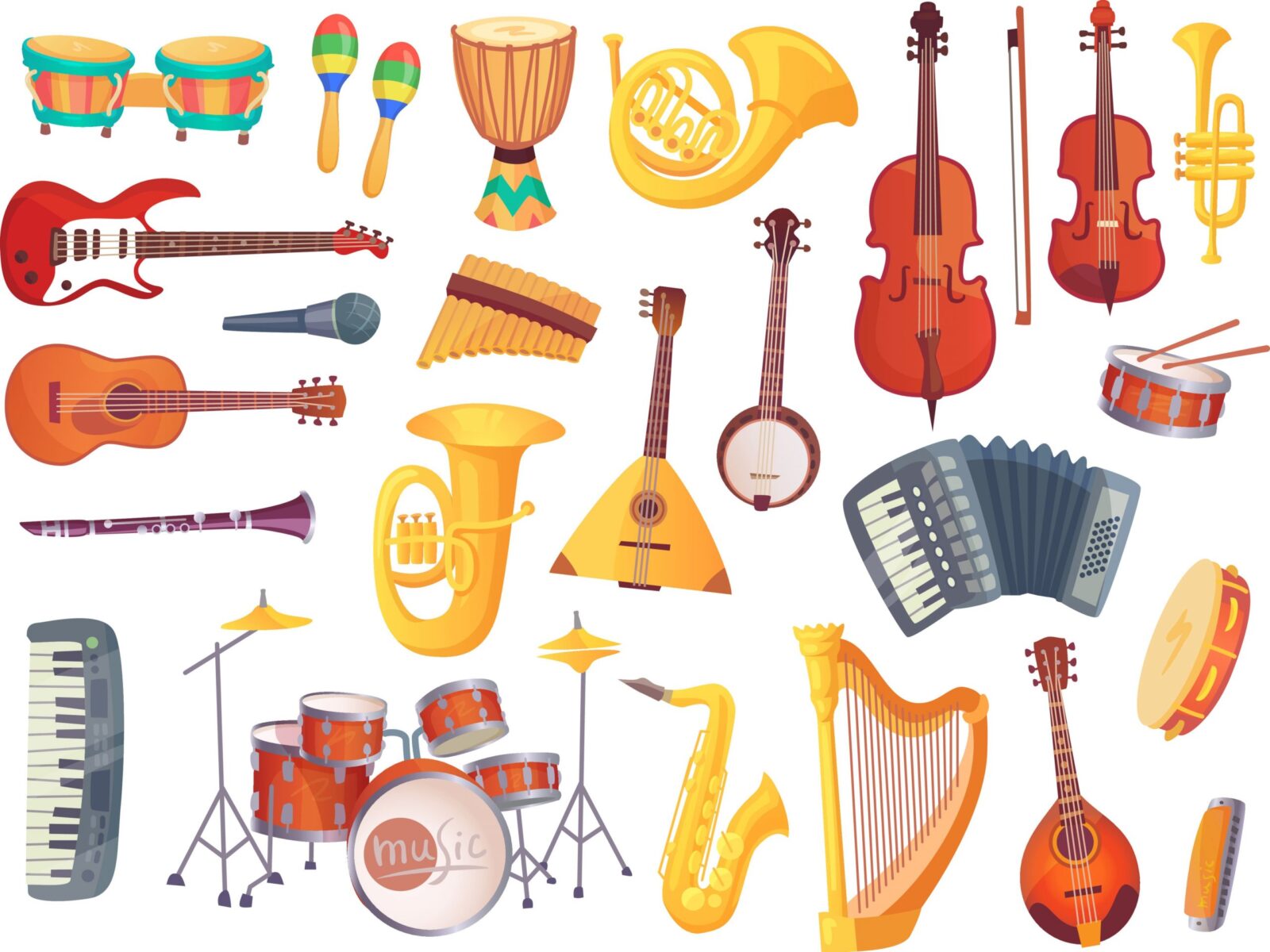Many hobbies exist that can fulfill people’s lives, whether that be reading, writing, building Lego models, baking… the list could go on and on! These different hobbies can improve your life for reasons x, y, and z. But, is there one hobby that has more to offer than the rest?
Many would argue learning a musical instrument makes it to the top of the list. But, why?
Here are a number of benefits you gain from learning how to play musical instruments:
- Strengthens Your Brain
Music can strengthen the brain. However, research shows that in order to reap the full benefits that music has to offer, you have to do more than sit in a music class or listen to it on the radio. What better way to guarantee interaction with music than to learn to play a musical instrument?
Luckily, there are many different musical instruments to choose from, and these include:
- Piano/keyboard
- Flute
- Guitar
- Recorder
- Drums
- Saxaphone
- Trombone
- And so many more
Some of the easiest instruments to learn are included in the above list. It’s suggested to try out a few different instruments before deciding which one to take on.
Listening to or playing a musical instrument engages your brain in ways other activities can’t. There’s more that goes into interpreting music than many realize. There’s structure, math, and architecture involved that your brain must compute to make sense of. Practicing this not only makes your brain stronger, but keeps it from aging, aids in your creativity, and helps to recall old memories.
Learning a new instrument can be great for the brain—what squats are to legs—a great workout that makes your brain stronger in the long run.
Like crossword puzzles and Sudoku, playing musical instruments help to enhance three main things:
- Verbal memory: remembering what you read or hear
- Spatial reasoning: ability to think about objects dimensionally and draw conclusions about them with limited information
- Literacy skills: skills you need for reading and writing, like vocabulary, spelling, and comprehension

- Improves Social Life
A person’s social life can be greatly improved simply by joining fellow musicians. Having something in common with others helps build relationships by increasing cooperation with others. Making music with another person releases endorphins in the brain, the same as having a conversation with a good friend brings you immense pleasure.
Music can also help to create empathy between two people who play together, evoking emotions that bring the two closer together. If you take your music to the public, like the London Sinfonietta did for their 50th anniversary season, it will help build social skills and bring you closer to those who may not be playing instruments themselves, but enjoy listening.
Another bonus of working closely with others who have similar interests as yours is that you get to learn more about teamwork. Whether you’re learning to play one-on-one with an instructor or with fellow musicians, the act of learning to play an instrument is done between more than one person. You must be willing to work with an instructor or band mate to ensure success for both parties.
The skill of teamwork that’s learned in rehearsals can, then, be rolled over into other aspects of your life.
- Relieves Stress
Like exercise, playing a musical instrument can serve as a stress reliever. The key here is that playing a musical instrument becomes an outlet, one wherein stress or any bad energy can be refocused and turned into music. This reallocation of stress eases its burden on you.
Music has proven to be so successful in causing stress relief, so much so that it’s even used in therapy to help patients with depression or dementia.
Playing an instrument encourages you to be in the present and practice mindfulness of the moment you’re currently in. This practice of mindfulness is similar to meditation, such that you shut out the outside world and all the worries and stressors it holds.
It also makes you take time away from screens, like television or phones. Technology has become a staple in people’s lives, but taking the time to step back from that and do something in the real world serves as a great way to unwind after a long or stressful day.
And, finally, when music is made a social event, that socialization can also help to reduce stress levels.
- Builds Confidence
Anyone who has mastered a skill can attest to the amount of self-confidence that such a feat provides. This self-confidence comes from different aspects of playing an instrument, such as the following:
- Playing for audiences helps build confidence in presenting one’s work. This confidence can be applied outside the field of music, like when doing a presentation at work, for example.
- There’s a wide range of skills that are developed when playing an instrument. Learning these skills builds IQ and, in turn, that knowledge creates confidence within an individual.
- Being able to express oneself through their own music and using an instrument of their own choosing give a person power over their learning, which leads to a boost in confidence.
- Improves Patience
While learning how to play an instrument will sure be a challenge to any beginner, it will also teach them to be patient.
Learning to play an instrument doesn’t happen overnight; it requires time and effort to be put in over a period of time in order to see results. When learning to play an instrument, you also learn the importance of commitment and perseverance because as you continue to work through challenges, the rewards you gain are proof of how patience benefits you.
- It’s Fun
Playing an instrument is fun. Part of the reason is the amount of creativity involved. Playing an instrument allows for expression of oneself through the music, and this alone is a fun and rewarding aspect of music.
Beyond that, playing an instrument engages and stimulates your brain in a way that releases endorphins, which make you happy. Unlike scanning through TV channels or scrolling through a phone, which numbs your mind, playing an instrument brings your mind to life.
Conclusion
As you can see, the benefits gained from learning to play a musical instrument are vast and varied. From your brain, to your mental health, to your social life, and skills that can even improve your life outside of music, these benefits should make you want to pick up a new instrument today.

























